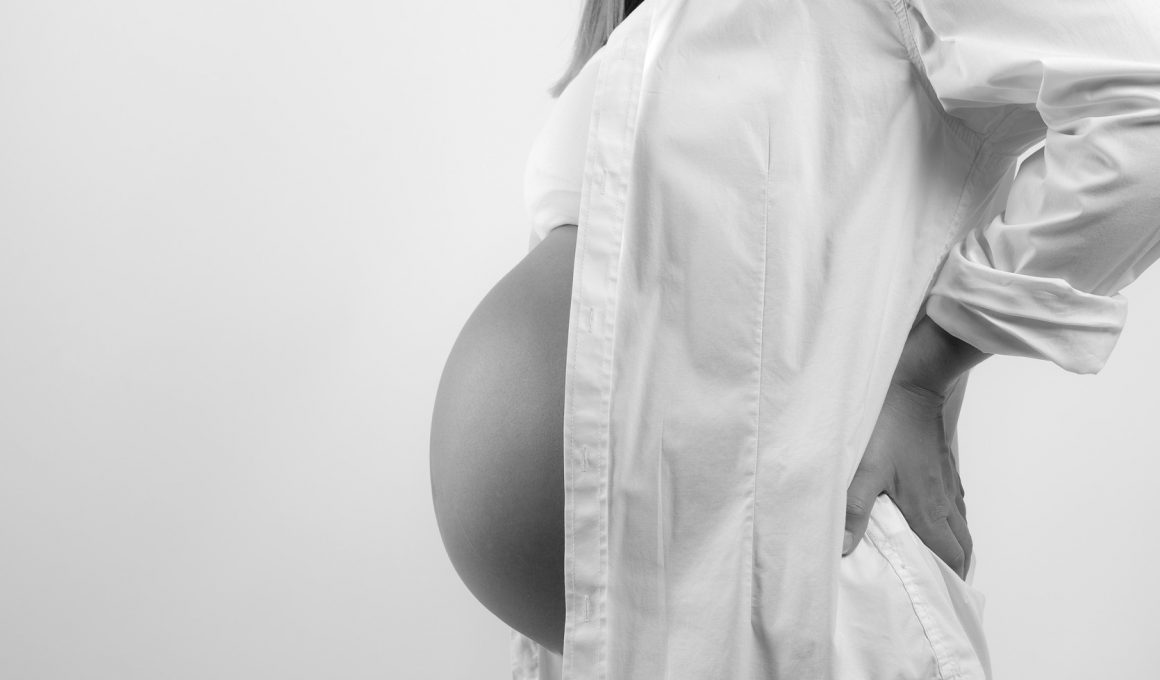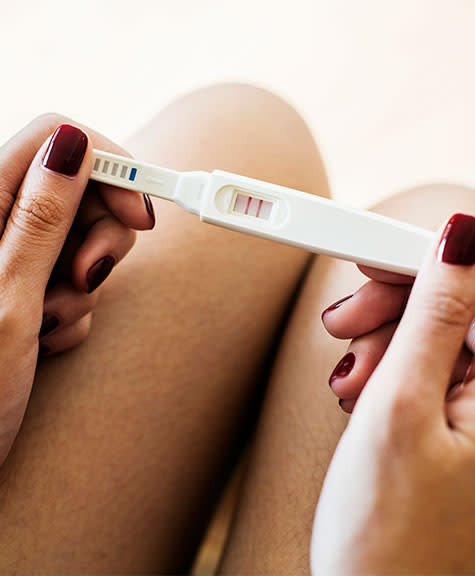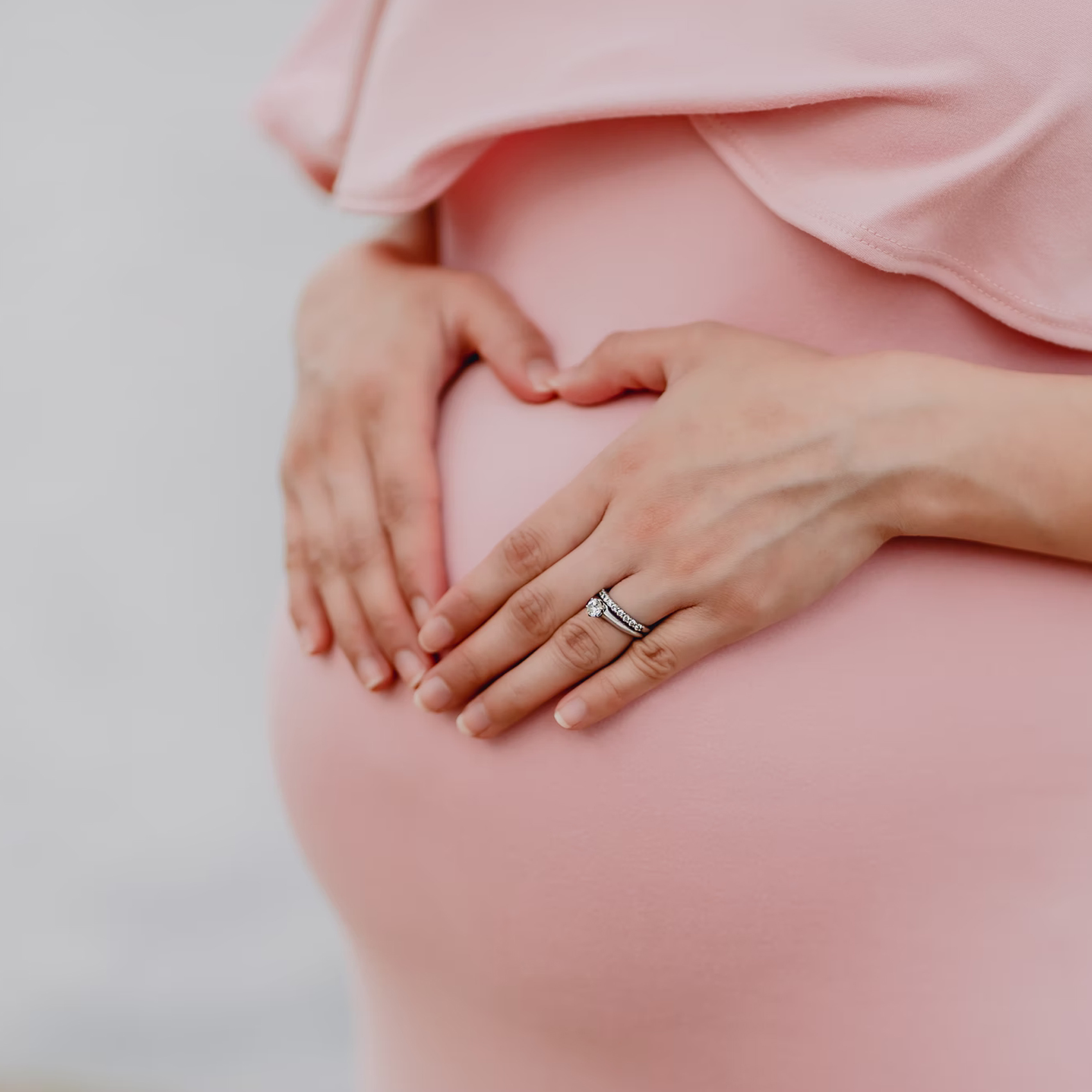Pregnancy can be an incredible experience for a woman, but it’s not always comfortable. Hormonal changes can lead to various symptoms that may cause discomfort during pregnancy.
The symptoms of discomfort can vary from person to person. While some women may experience only mild discomforts, others may have to deal with more severe symptoms, making pregnancy a challenging journey.
It’s essential to note that some discomforts during pregnancy are considered normal, while others may indicate a more serious issue.
In this article, we’ll discuss some common discomforts of pregnancy and provide tips to help you overcome them.
1. Morning sickness
Nausea and vomiting, also known as “morning sickness,” affects roughly half of all pregnant women during the first trimester.
Contrary to its name, morning sickness can occur at any time of day or night. However, the most severe symptoms typically manifest in the morning, which is why it’s called morning sickness.
Although morning sickness typically subsides by around 14 weeks into the pregnancy, it can sometimes persist throughout the entire pregnancy. Moreover, if a woman is carrying twins, the symptoms may be more severe.
Why do pregnant women get morning sickness?
Morning sickness is believed to be caused by hormonal changes that take place during pregnancy, although the exact cause is still unknown.
Several factors can contribute to nausea, including an imbalance of dietary potassium and magnesium, low blood sugar, and low levels of vitamin B6 (pyridoxine).
Moreover, stress, traveling, and the consumption of certain spicy or fatty foods can exacerbate the symptoms of morning sickness.
Is morning sickness harmful to your baby?
There isn’t any research that suggests morning sickness harms your baby.
However, nausea can affect your food choices, which is why it’s essential to speak with a health professional to determine an appropriate diet plan. You and your baby require a variety of nutrients from the foods you consume, and healthy eating during pregnancy is more crucial than ever.
Additionally, it’s vital to prevent dehydration, particularly if you’re vomiting. It’s crucial to monitor your fluid intake carefully to ensure that you stay hydrated.
Tips for relieving morning sickness
Here are some tips for relieving morning sickness:
- Sit up in bed for a few moments before getting out of bed.
- Take it slow when getting up and out of bed in the morning.
- Eat small, frequent meals throughout the day to prevent an empty stomach.
- Carry snacks with you and don’t go without food for long periods.
- Drink water before and after a meal, rather than with food, and aim to drink 8 glasses of water a day.
- Eat high-protein, low-fat, nutritious meals to help with nausea.
- Stick to bland foods that are easy to digest, such as dry toast, crackers, bananas, rice, and apples.
- Avoid spicy or fatty foods and skipping meals.
- Try to stay away from smells and tastes that make you feel queasy, and consider asking for help in preparing your food if certain smells bother you.
- Get enough rest, as nausea may feel worse when you’re tired.
- Talk to your doctor before taking any medication or food supplements.
- Try to find time for breathing exercises or meditation.
- Wear anti-nausea wristbands.
When should you see a doctor?
If nausea or vomiting is causing significant discomfort, you should consult your doctor.
Signs that you need to see a doctor include:
- very dark urine
- blood in vomit
- extreme fatigue
- dramatic weight loss
- Dehydration due to the inability to keep fluids down
2. Fatigue
Fatigue is a common symptom of pregnancy and can be characterized as a constant lack of energy. It is an early sign of pregnancy that almost all women experience during the first trimester. Feeling fatigued during the third trimester is also very common and is estimated to affect about 60% of all pregnant women.
Causes of fatigue during early pregnancy
There are several factors that may cause pregnancy fatigue in the first trimester, including:
- Building the placenta: Creating the placenta is a significant task that requires a lot of energy from your body.
- Hormones: Increasing production of progesterone during pregnancy can cause fatigue, along with mood swings that can also contribute to tiredness.
- Increased blood supply: The demands of creating and pumping extra blood to supply the baby with nutrients and oxygen can make you feel fatigued.
- Other physical changes: Your body undergoes significant changes throughout pregnancy, including increased metabolism, higher heart rate, lower blood sugar and blood pressure, and increased nutrient and water usage, all of which can contribute to fatigue.
Causes of fatigue in the third trimester
During the third trimester, factors that can contribute to fatigue include:
- Increased physical discomfort: As your baby continues to grow, you may experience more physical discomfort, such as back pain, pelvic pain, and pressure on your bladder or other organs.
- Braxton Hicks contractions: These “practice” contractions can be uncomfortable and draining.
- Anemia: Iron-deficiency anemia is common during pregnancy and can cause fatigue.
- Gestational diabetes: This condition can make you feel more tired than usual due to changes in your blood sugar levels.
- Decreased activity level: As you get closer to your due date, you may find yourself slowing down and doing less physical activity, which can lead to feelings of fatigue.
How can you avoid or treat fatigue during pregnancy?
The American Pregnancy Association recommends the following tips to help reduce lack of energy and fatigue during pregnancy:
- Take several cat naps if possible and use a quality pregnancy pillow for support.
- Get up and walk around to get your body moving.
- Aim to go to bed early and establish a consistent sleep routine.
- Reduce the likelihood of being woken up by the need to pee by drinking fluids earlier in the day and avoiding drinking within 2 hours of bedtime.
- Avoid eating within 2-3 hours before bedtime to minimize nighttime heartburn.
- Stretch your leg muscles before bedtime to avoid leg cramps, and include potassium-rich foods like bananas, peaches, kiwis, potatoes, and leafy greens in your diet.
- Exercise regularly, unless advised otherwise by your healthcare provider. Even just 30 minutes of walking three or more times per week can help improve your mood and energy levels.
- Try to eat every 3-4 hours and make sure each meal and snack includes carbohydrates, proteins, and fats.
- Choose high-fiber carbohydrates like whole grains, starchy vegetables, and fruit while minimizing sweets and refined grains.
- Limit or avoid caffeine, with 200 mg being the maximum daily amount considered safe during pregnancy.
- Drink plenty of fluids, especially water, to stay hydrated.
- Find ways to reduce stress by engaging in activities that you find relaxing. Don’t be afraid to ask for help if you feel overwhelmed, and consider resources like meditation to help manage stress.
Remember to consult with your healthcare provider if you have any concerns or questions about managing fatigue during pregnancy.
When should you see a doctor?
You should seek medical help if:
- Fatigue occurs suddenly
- Fatigue doesn’t ease with rest
- Fatigue doesn’t ease during the second trimester
3. Backache
During pregnancy, your body undergoes many changes. Your breasts enlarge, your belly expands, and you gain weight, causing your muscles, ligaments, and joints to stretch and loosen.
These changes can affect your center of gravity and balance and may strain your shoulders and back, leading to upper and lower back pain. Additionally, the weight of your growing baby can put extra strain on the arch in your lower back.
How to avoid backache during pregnancy?
You can protect your back during pregnancy by avoiding or changing how you do certain things.
- Lift carefully: Avoid heavy lifting, but if you have to lift something heavy, keep your back straight, bend your knees, and tighten your pelvic floor and abdominal muscles. Keep the object close to your body.
- Mind your posture: Stand with your weight evenly distributed on both legs, your back straight, and your pelvis tucked in. Avoid standing for extended periods and sit with your bottom at the back of the chair and your feet on a stool if necessary.
- Maintain a healthy weight: Stay within your doctor’s recommended weight gain guidelines, as your spine has to support your weight. A healthy weight is crucial for your overall health and well-being.
- Be cautious in bed: Sleep on your side with a pillow between your knees. When getting out of bed, roll onto your side with your knees together and use your arms for support as you swing your legs onto the floor.
- Wear low-heeled shoes: Avoid high heels to minimize back pain.
- Use heat and cold: If approved by your healthcare provider, apply cold compresses on the painful area for up to 20 minutes several times a day for the first two or three days. After that, switch to heat with a heating pad or hot water bottle. Do not apply heat to your abdomen during pregnancy.
- Get enough rest: Avoid overexertion and take adequate rest.
- Consider a maternity support belt: These belts are designed to allow you to engage comfortably in daily activities.
How to strengthen your back during pregnancy?
Regular exercise is important during pregnancy, but it is recommended to consult your doctor first. Your doctor can suggest ways to strengthen your back as well.
Here are some impacts of exercise on your back and additional tips for strengthening your back during pregnancy:
- Regular exercises strengthens muscles and boosts flexibility, easing the stress on your spine. Walking, swimming, and stationary cycling are generally safe exercises, but it’s always best to consult your doctor for appropriate exercises to strengthen your back.
- Stretch your lower back by kneeling on all fours with your head in line with your back. Pull in your stomach and arch your back. Hold the posture for a few seconds and then relax. Repeat ten times.
- Keep your tummy muscles strong with pelvic tilt exercises. Lie on your back with your knees bent and your feet flat. Tilt your pelvis and hips backward so that the curve of your back is flat with the floor, holding for 3 to 5 seconds.
When should you see a doctor?
If your back pain is severe or lasts for more than 2 weeks, it’s important to consult with your doctor. Back pain can sometimes indicate premature labor or a urinary tract infection.
4. Breast tenderness
Breast tenderness is a prevalent pregnancy discomfort that may manifest as early as weeks 4 to 7 and persist through the first trimester, with continued changes in breast size and shape throughout pregnancy.
While some women may experience mild changes, others may notice significant breast growth and increased weight.
As your body begins to produce pregnancy hormones, such as estrogen, progesterone, and prolactin, they stimulate your breasts, causing the milk glands to expand and prepare for breastfeeding. These changes can lead to discomfort and sensitivity in your breasts.
What to do when your breasts get tender?
Breast tenderness often eases up as the pregnancy progresses, but there are several ways to help alleviate discomfort:
- Ensure you have a well-fitting bra that can support your growing breasts and handle the extra weight.
- Wear a comfortable bra to bed to provide support while sleeping.
- Choose a supportive sports bra during exercise.
- Opt for loose-fitting clothing that doesn’t put pressure on your breasts.
- Apply warm or cold compresses to soothe soreness.
- If needed, ask your doctor about safe pain relief options.
5. Indigestion and Heartburn
Indigestion and heartburn are common pregnancy discomforts, with more than half of pregnant women experiencing serious heartburn, especially during their second and third trimesters.
Indigestion is a feeling of pain or discomfort in your stomach that typically occurs after eating or drinking. Heartburn, also known as reflux or acid indigestion, is a burning pain in your chest or stomach that can travel up toward your throat.
It is caused by stomach acid rising up into your esophagus, which can irritate its lining. At times, food may also regurgitate back up from your stomach into your mouth.
Symptoms of heartburn during pregnancy
Symptoms of heartburn during pregnancy may include:
- Feeling a burning or painful sensation in your chest or throat, especially after eating
- Experiencing feelings of fullness, heaviness, or bloating in your stomach
- Burping or belching frequently
- Having a sour or bitter taste in your mouth
- Coughing or experiencing a sore throat
It’s important to talk to your doctor if you are experiencing frequent or severe heartburn during pregnancy, as it can be a sign of more serious conditions such as gastroesophageal reflux disease (GERD). Your doctor can recommend safe and effective treatments to help manage your symptoms.
Causes of heartburn during pregnancy
Heartburn during pregnancy is mainly caused by the hormonal changes in your body. The hormone progesterone can relax the muscle that normally keeps the opening between your esophagus and stomach closed, allowing stomach acid to flow back into your esophagus.
As your pregnancy progresses, your growing uterus can also pressure your stomach, pushing its contents up into your esophagus and increasing your risk of heartburn. This is why heartburn tends to become more common as your pregnancy progresses.
What causes heartburn during pregnancy?
Heartburn may be caused by various factors, such as
- a large meal portion
- high-fat foods
- spicy foods
- chocolate
- citrus fruit juices
- drinks containing caffeine, including coffee, tea, and cola
- alcohol (which is not advised during pregnancy)
- soon after exercising
- lying down after eating
- we are experiencing anxiety
How can you avoid heartburn?
To avoid heartburn, you may try the following tips:
- Consume several small meals instead of three large ones.
- Eat your meals slowly.
- Avoid consuming fried, spicy, or fatty foods.
- Refrain from eating for at least 2 or 3 hours before exercising or going to bed.
- Avoid smoking and drinking alcohol.
- Refrain from eating and drinking simultaneously, as this can cause your stomach to feel fuller.
- Avoid lying down immediately after eating.
- Keep the head of your bed elevated higher than the foot of your bed or use pillows to elevate your shoulders, which can help prevent stomach acids from flowing up into your esophagus.
- Wear loose-fitting clothing. Tight-fitting clothes can increase the pressure on your stomach and abdomen.
When should you see a doctor?
You should seek medical help if you are facing difficulty managing your symptoms of indigestion and heartburn.
You should also see your doctor if you have any of the following:
- difficulty eating or keeping food down
- weight loss
- stomach pain
6. Headaches
Headaches are a prevalent pregnancy discomfort that can occur anytime. However, they are most frequent in the first and third trimesters. There are various reasons why headaches may develop.
Causes of headaches
Many factors might contribute to headaches during your pregnancy.
- hormonal changes
- Increase in blood volume
- Lack of sleep
- Caffeine withdrawals
- Low blood sugar from not eating regularly
- dehydration
- Feeling stressed, anxious, or depressed
For women who suffer from migraines, pregnancy may bring relief as they may experience fewer migraines. However, some women may continue to experience the same number or even more migraines. If you are pregnant, it is crucial to discuss any medications you take for headaches with your healthcare provider.
During the third trimester, headaches are often associated with poor posture and tension caused by carrying extra weight.
What to do to relieve headaches during your pregnancy?
We’ve compiled a short list of natural remedies recommended by American Pregnancy Association that work well to relieve headaches during pregnancy:
Before taking any medication, do not hesitate to contact your doctor.
- Apply a warm compress around your eyes and nose if you have a sinus headache.
- Apply a cold compress or ice pack at the base of your neck if you have a tension headache.
- Eat smaller, more frequent meals to maintain your blood sugar, which may also help prevent future headaches.
- Get a massage, especially in your shoulders and neck, to relieve pain.
- Rest in a dark room and practice deep breathing.
- Take a warm shower or bath.
- Practice good posture, especially during the third trimester.
- Get plenty of rest.
- Exercise regularly.
- Consume well-balanced meals.
When should you see a doctor?
The most important thing to remember during pregnancy is to seek advice from your doctor before taking any medication. You should also see a doctor if:
- The above remedies do not provide relief.
- Your headaches become more severe or persistent.
- You experience headaches that differ from your usual ones.
- Your headaches are accompanied by blurry vision, sudden weight gain, pain in the upper right abdomen, and swelling in the hands and face.
7. Excessive sweating and night sweats
During pregnancy, your body temperature may rise due to hormonal changes, increased weight, and greater blood circulation. As a result, you may feel warm and sweaty, particularly at night.
Sweating helps you cool down and regulate your body temperature when you start feeling warm. Hormonal shifts during pregnancy can also cause your hypothalamus to perceive your body as hotter than it is, triggering excessive sweating. This can make you feel like the temperature is higher than it actually is.
Although sweating more than usual is normal during pregnancy and postpartum, it is most common and severe during the first and third trimesters, including night sweats.
If you experience excessive perspiration and night sweats during pregnancy, you can try the following:
- Wear light or layered clothing that you can remove easily.
- Avoid consuming caffeine and spicy foods.
- Drink plenty of water to stay hydrated and replenish lost fluids due to sweating.
- Carry wet wipes or a small fan to cool down when feeling warm and sweaty.
- Exercise in a cool room rather than outdoors when the temperature is high.
- Stay indoors with air conditioning or a fan to maintain a cooler temperature.
- Keep your bedroom cooler at night and layer blankets for comfort.
- Place a towel over your pillow and sheets to absorb night sweats.
- Try to stay within the recommended weight gain guidelines during pregnancy.
When should you see a doctor?
Even though sweating and night sweats are common occurrences in pregnancy, you should inform your doctor about all the symptoms you may be experiencing. Excessive sweating is an important one.
If you experience any of the following, it’s important to contact your doctor right away:
- Widespread itching, especially if there is no accompanying rash
- A body temperature of 100.2 degrees F or higher
- Signs of dehydration or illness
- Dizziness or fainting
- Severe discomfort
- Continuing to experience excessive sweating beyond six weeks after delivery
- Any other serious questions or concerns
8. Changes in Hair
During pregnancy, hormonal changes can alter the natural hair growth cycle, resulting in hair that may appear thicker or thinner than usual. Normally, individual hairs go through a growth cycle, rest for 2-3 months, and then fall out to be replaced by new hair. However, pregnancy can disrupt this cycle.
Hair might become thicker
During pregnancy, the increase in estrogen hormone levels can prolong the growth phase of individual hairs, resulting in less hair falling out than usual. As a result, many women may notice their hair feeling thicker at around 15 weeks of pregnancy .
Hair might become thinner
The hormonal changes during pregnancy can also affect your hair, sometimes resulting in excessive hair loss or shedding. This is due to a decrease in estrogen levels, which may happen as a result of:
- stopping the oral contraceptive pill
- experiencing an abortion, miscarriage, or stillbirth
- or a hormonal imbalance during pregnancy.
After pregnancy, it is common for women to experience hair loss as their estrogen levels return to normal. This causes the additional hair from the growth phase to change to the resting phase, which then falls out more than usual until around 3-4 months after the child is born. However, this is usually nothing to worry about, and hair growth may return to normal by the time your baby is 1 year old.
If you feel that something is going wrong with your hair and the hair fall is excessive, it is recommended to consult your doctor.
9. Bladder and bowel problems
Due to the physical and hormonal changes taking place during pregnancy, many women experience rather unpleasant conditions such as constipation, needing to urinate more frequently, hemorrhoids, and incontinence.
constipation
Constipation is a common pregnancy discomfort, with about 16 to 39% of women experiencing it at some point. This means that you may not pass stools as often as you normally do, have to strain more than usual, or be unable to empty your bowels completely. Constipation can also cause your stools to be unusually hard, lumpy, large, or small.
You’re most likely to get constipated in the third trimester when the fetus is heaviest and placing the most pressure on your bowel. However, constipation can happen in all three trimesters. Sometimes, you’ll continue to be constipated up to three months after the baby is born.
What can make you constipated?
Constipation during pregnancy can be caused by various factors related to your body and daily habits. These include:
- Progesterone: Hormonal changes during pregnancy cause increased levels of progesterone, which can relax your intestines and slow down bowel movements. This allows more time for the large intestine to absorb moisture from food, resulting in dried-out and hard-to-pass stools.
- Fetus: As your fetus grows, the extra weight can put pressure on your bowel, making it harder for waste to move out of your body.
- Iron from prenatal vitamins: Too much iron from supplements can hinder the ability of bacteria in your bowel to break down food, leading to constipation. Not drinking enough water to soften stool can worsen the issue, as the waste can build up in the colon.
- Lifestyle: Your diet, fluid intake, and exercise habits also contribute to constipation during pregnancy. A diet low in fiber and high in processed foods can cause constipation, while staying hydrated and exercising regularly can help keep your bowel movements regular.
What can you do to relieve constipation?
You can make some simple changes to your daily routine to relieve constipation. These include:
- Stay hydrated by drinking plenty of fluids, especially water.
- Make physical activity a part of your daily routine, as it can help prevent constipation during pregnancy.
- Increase your fiber intake by choosing high-fiber foods such as fruits, vegetables, beans, and whole grains. Aim for 25 to 30 grams of fiber-rich foods per day.
hemorrhoids
Hemorrhoids are a common issue during later stages of pregnancy. In fact, about 30% to 40% of pregnant individuals develop hemorrhoids. Hemorrhoids often develop during the third trimester of pregnancy and during and shortly after childbirth.
It is possible to experience hemorrhoids only during pregnancy or to have them at other times of your life as well. There are two types of hemorrhoids: internal and external. Each type can have different symptoms, ranging from discomfort and itching to pain and bleeding.
Common symptoms of hemorrhoids include:
- bleeding (you may notice blood when you wipe after a bowel movement)
- painful bowel movements
- a raised area of skin near your anus
- itching
- burning
- swelling
During pregnancy, several causes may lead to the development of hemorrhoids, which include:
- Increased blood volume: As your body produces more blood to support your growing baby, it can cause the veins in your rectum and anus to become larger and more prone to swelling.
- Pressure on veins: The growing uterus and your baby’s weight can put pressure on the veins near your anus, which can also contribute to hemorrhoid development.
- Changing hormones: Hormonal changes during pregnancy can also affect the veins in your rectum and anus, making them more susceptible to swelling and inflammation.
- Constipation: Constipation is a common problem during pregnancy and can also contribute to the development of hemorrhoids. Straining during bowel movements can put pressure on the veins in your rectum and anus, leading to swelling and irritation.
Home remedies for hemorrhoids
Here are the suggested home remedies from Healthline experts to relieve and prevent hemorrhoids:
- Use wipes or pads that contain witch hazel.
- Use gentle, flushable wipes when you have a bowel movement.
- Use a sitz bath or soak in clean warm water for 10 minutes at a time a few times a day.
- Take Epsom salt baths in warm water that’s not too hot.
- Hold an ice pack on the area for a few minutes several times a day.
- Move around frequently and try not to sit for too long to avoid extra pressure on your anus.
- Drink lots of water and eat foods high in fiber to help keep stools soft.
- Avoid straining while having a bowel movement or sitting on the toilet for long periods.
- Perform Kegel exercises to strengthen muscles.
These remedies can help reduce the symptoms of hemorrhoids, such as pain, itching, and swelling, and also prevent them from recurring. It’s always recommended to consult a healthcare provider if you experience severe or persistent symptoms, as they can provide further guidance and treatment options.
How to prevent hemorrhoids during pregnancy?
You can try to reduce or prevent hemorrhoids from developing in several ways.
- Eat a diet rich in fiber, including plenty of vegetables and fruits.
- Stay hydrated by drinking plenty of water to help keep your stools soft and regular.
- Avoid straining when using the toilet.
- Try not to sit on the toilet for long periods of time.
- When you feel the urge to have a bowel movement, pass it as soon as possible rather than holding it in or delaying.
- Stay active by exercising and moving around frequently.
- Talk to your doctor about adding a supplement to your diet that can help prevent constipation and promote regular bowel movements.
Frequent urination
Frequent urination is a common symptom of pregnancy. However, the regular pattern of urination can vary from person to person, with an average of around six times a day and ranging anywhere from four to ten times.
The need to urinate frequently begins early in pregnancy and may increase in frequency late in pregnancy, typically from week 35 onwards . This occurs due to several changes in the body during pregnancy.
During pregnancy, the body produces more fluids than at other times, which can increase the need to urinate. Additionally, the kidneys become more efficient in producing urine. The growing uterus, situated directly behind the bladder, also puts pressure on the bladder, making it more difficult to hold urine for longer periods.
For some women, weak pelvic floor muscles can also contribute to frequent urination during pregnancy. These muscles support the organs in the pelvis, including the bladder, uterus, and bowel. When the muscles are weak, they may not be able to support the bladder properly, leading to more frequent urination.
It is essential to talk to your healthcare provider if you experience any concerning symptoms, such as pain or discomfort while urinating, blood in the urine, or difficulty controlling urination.
Could frequent urination be a sign of something more serious?
In most cases, frequent urination during pregnancy is quite normal. But in some situations, it can be indicative of a bigger problem.
If you feel a stinging, burning sensation or if you feel any pain when you urinate, you must get in touch with your doctor. It might indicate an infection that needs to be treated promptly.
incontinence
Urinary incontinence is common for many women during pregnancy and after giving birth. Incontinence is the inability to control the passage of urine, which can result in embarrassing situations and discomfort.
During pregnancy, the growing baby can pressure the bladder, leading to frequent urination and sometimes incontinence. This can be particularly common in the later stages of pregnancy. Similarly, the pelvic floor muscles may weaken or get damaged after childbirth, leading to bladder control problems.
Pelvic organ prolapse, weakened pelvic floor muscles, and damaged pelvic nerves are other causes of bladder control issues. These issues can affect women during pregnancy as well as after childbirth.
Kegel exercises are often recommended by healthcare professionals to help strengthen the pelvic floor muscles, which can lead to improved bladder control. These exercises involve contracting and releasing the muscles that control urination, which can be done discreetly throughout the day.
10. Leg cramps
Leg cramps are a common pregnancy discomfort experienced by pregnant women, typically occurring in the calf muscles or feet when a muscle suddenly tightens and shortens. According to the American Pregnancy Association , almost half of all pregnant women suffer from leg cramps during the second or third trimester, often at night.
The exact cause of leg cramps during pregnancy is not fully understood, but it is believed to be linked to weight gain and changes in circulation . As the baby grows, pressure on nerves and blood vessels that supply the legs may increase, leading to muscle spasms. While leg cramps are generally harmless, they can be painful and disruptive to sleep.
How to avoid and treat pregnancy leg cramps
The American Pregnancy Association recommends trying the following tips to prevent and alleviate leg cramps.
- Exercise regularly and include a stretching routine. For a basic calf stretch, stand at an arm’s length from a wall and place your hands on it. Move your right foot behind your left foot with your toes facing the wall. Slowly bend your left leg forward while keeping your right knee straight and your right heel on the ground. Hold the stretch for about 30 seconds with your back straight and hips forward. Breathe deeply throughout and repeat with the other leg.
- If cramps occur, gently stretch the affected side and then rest with your legs elevated. You may also find relief from a warm bath, ice massage, or muscle massage.
- Stay hydrated by drinking plenty of water. Your urine should be clear or light yellow. -Wear support socks or stockings that provide compression on your calves.
- Increase your intake of calcium and magnesium-rich foods like whole grains, beans, dried fruit, nuts, and seeds.
References: parents.com, raisingchildren.net.au, clevelandclinic.com, mayoclinic.com, pregnancybirthbaby.org.au, marchofdimes.org, americanpregnancy.org, verywellfamily.com, webmd.com










